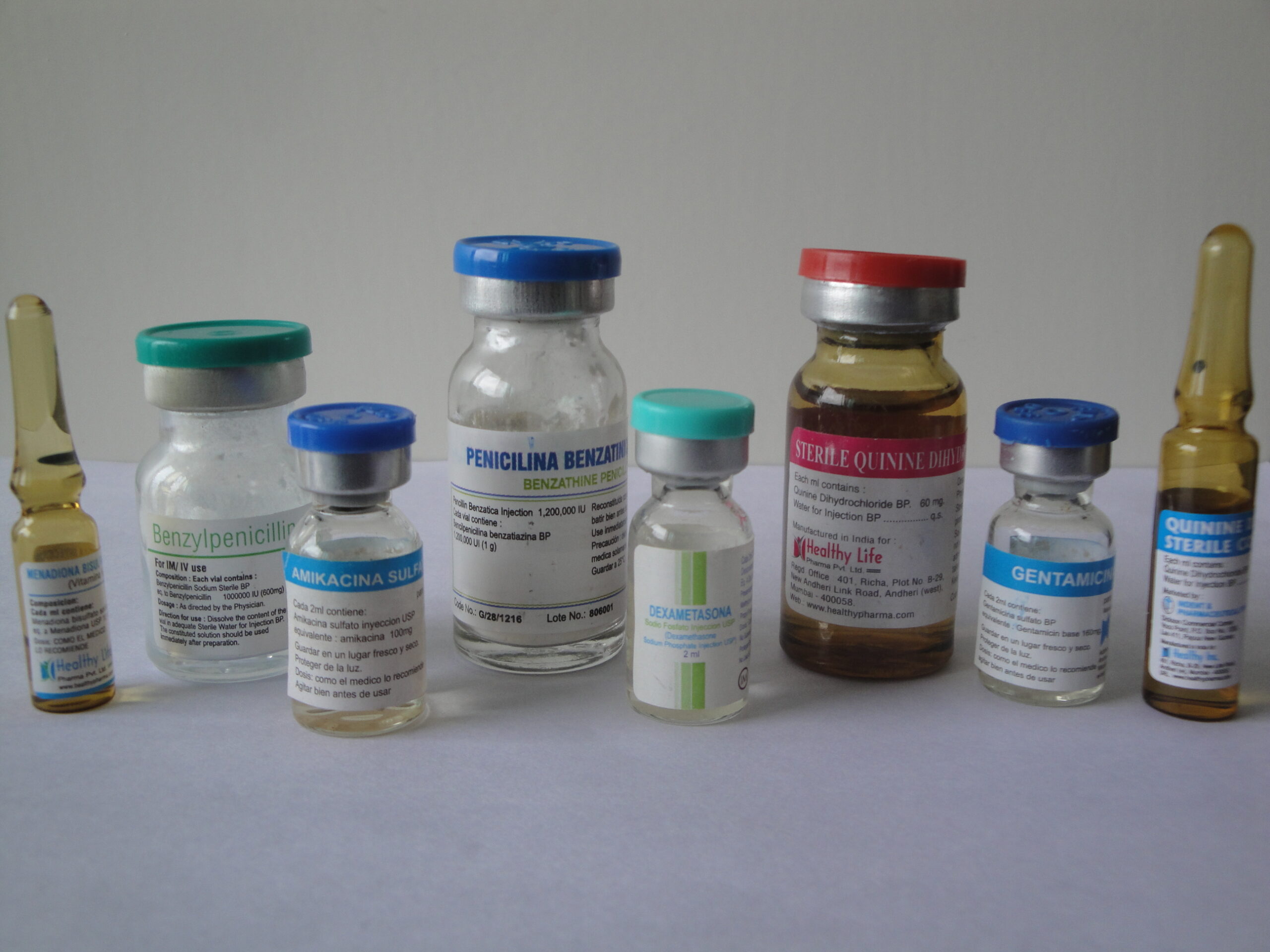Description
Trimethoprim & Sulphamethoxazole veterinary injection
Trimethoprim and sulfamethoxazole (TMP-SMZ) can be administered to animals through injection for various bacterial infections. The injectable form of this antibiotic is often used when a rapid onset of action is required or when an animal is unable to take medications orally. Here are some common veterinary uses for Trimethoprim & Sulphamethoxazole injection:
Respiratory Infections:
Bacterial pneumonia
Upper respiratory tract infections
Urinary Tract Infections (UTIs):
Cystitis
Pyelonephritis
Gastrointestinal Infections:
Colitis
Enteritis
Diarrhea caused by certain bacteria
Skin and Soft Tissue Infections:
Dermatitis
Cellulitis
Systemic Infections:
Septicemia
Bacterial infections affecting multiple organs
Prophylaxis:
Prevention of infections after surgery or in immunocompromised animals
It’s important to note that the specific use, dosage, and duration of treatment with trimethoprim and sulfamethoxazole should be determined by a veterinarian based on the type and severity of the infection, the animal’s size and species, and other individual health considerations. The veterinarian will consider factors such as the susceptibility of the bacteria causing the infection, the potential for side effects, and the overall health status of the animal.
As with any medication, it’s crucial to follow the veterinarian’s instructions carefully and complete the full course of treatment, even if the animal appears to be improving before the medication is finished. This helps prevent the development of antibiotic resistance and ensures that the infection is fully eradicated. Additionally, close monitoring for any adverse reactions is essential during the course of treatment
Trimethoprim and sulfamethoxazole (TMP-SMZ) can be administered to animals through injection when necessary. The injectable form of this combination antibiotic is often used in veterinary medicine to treat bacterial infections in animals. Here are some common usages for Trimethoprim and Sulfamethoxazole injection in veterinary medicine:
Respiratory Infections:
Trimethoprim and sulfamethoxazole can be used to treat respiratory infections in animals, including pneumonia and bronchitis caused by susceptible bacteria.
Urinary Tract Infections:
This combination antibiotic is effective against urinary tract infections in animals, including those caused by bacteria such as Escherichia coli.
Gastrointestinal Infections:
It may be prescribed for gastrointestinal infections, such as bacterial enteritis, that are caused by susceptible organisms.
Skin and Soft Tissue Infections:
Trimethoprim and sulfamethoxazole can be used to treat bacterial infections of the skin and soft tissues in animals.
Prophylactic Use:
In some cases, veterinarians may prescribe this antibiotic as a prophylactic measure to prevent infections, especially in situations where there is a high risk of bacterial contamination or post-surgical infections.
Other Bacterial Infections:
The injectable form of TMP-SMZ can be used to address a variety of bacterial infections in different organs and systems of the animal’s body.
It’s important to note that the specific dosage, duration of treatment, and administration route will depend on factors such as the type and severity of the infection, the animal’s species, weight, and overall health. Only a licensed veterinarian can determine the appropriate use and dosage of trimethoprim and sulfamethoxazole for a particular animal.
As with any antibiotic, it’s crucial to follow the veterinarian’s instructions precisely, complete the full course of treatment, and report any adverse reactions or lack of improvement during the treatment period. Using antibiotics judiciously and under professional guidance helps minimize the risk of antibiotic resistance and ensures effective treatment for bacterial infections.
Trimethoprim and sulfamethoxazole (TMP-SMZ) is available for veterinary use in both oral and injectable forms. The injectable form is often used when a rapid and reliable administration of the antibiotic is required or when an animal is unable to take medications orally. Here are some common veterinary uses for injectable trimethoprim and sulfamethoxazole:
Respiratory Infections:
Used to treat respiratory infections in both small and large animals. This may include pneumonia or bronchitis caused by susceptible bacteria.
Urinary Tract Infections (UTIs):
Effective against certain bacterial strains causing urinary tract infections in animals.
Gastrointestinal Infections:
Employed to address bacterial infections affecting the gastrointestinal tract, such as enteritis or colitis.
Skin and Soft Tissue Infections:
Used for the treatment of bacterial infections affecting the skin and soft tissues.
Wound Infections:
Applied in cases of wound infections to combat bacterial growth.
Systemic Infections:
Employed for systemic infections where the bacteria have spread throughout the body.
Prophylaxis:
Sometimes used prophylactically in certain situations, such as before surgeries or in animals at risk of bacterial infections.
It’s crucial to note that the use of antibiotics should be based on a veterinarian’s diagnosis and prescription. The dosage and duration of treatment can vary depending on the specific infection, the severity of the condition, and the type of animal being treated. Veterinary professionals take into consideration factors such as the species, age, weight, and overall health of the animal when prescribing medications.
As with any antibiotic, it’s important to complete the entire course of treatment as prescribed, even if the symptoms improve before the medication is finished. This helps prevent the development of antibiotic resistance and ensures the complete eradication of the infection. Always follow the guidance and instructions provided by your veterinarian when administering medications to your pets.



